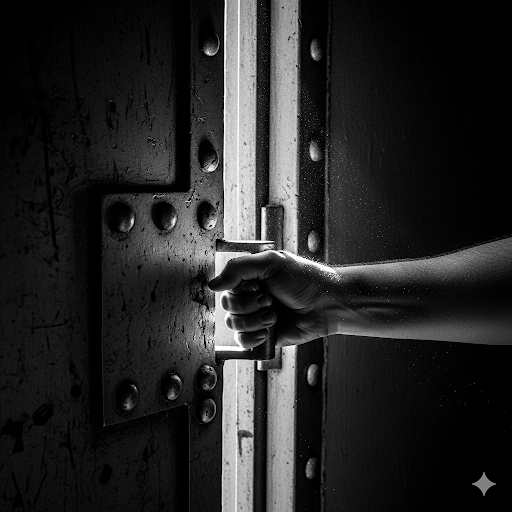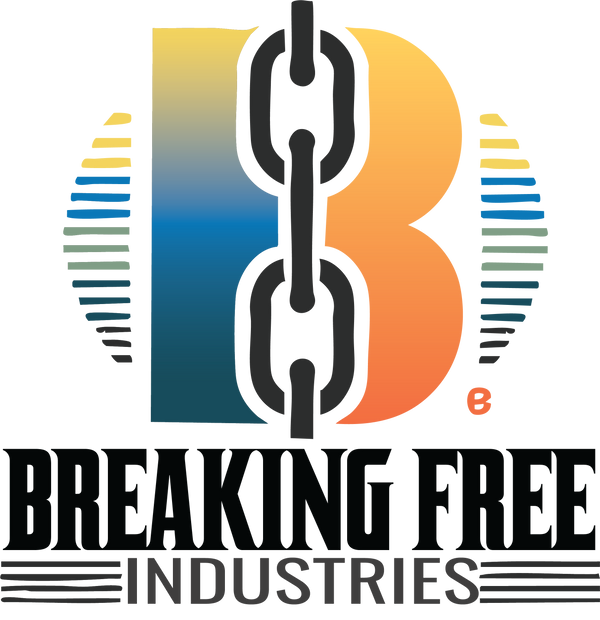
Reentry starts with you
Share
I work with people reentering a society that often didn’t make space for them the first time around. I work with people seeking redemption. But here’s a hard truth: redemption doesn’t happen until you choose it. And some people don’t. Some people come home and stay locked in the same cell they were released from, not because the door won’t open, but because the outside feels harder than the inside.
Let’s be honest about something we rarely say aloud: prison, for all its brutality, offers a certain kind of stability. It’s violent, dehumanizing, and full of dangers, but for some, it’s just predictable. You’ve got a bed. You’ve got three meals. You’ve got a routine. You know what the world expects of you: not much. In a society that demands constant hustle and proof of worth, that structure, twisted as it is, can start to feel like a kind of security.
Then you come home. And suddenly, you’re supposed to know how to navigate a job market that doesn’t trust you. You’re supposed to manage bills, groceries, relationships, and feelings. You’re supposed to advocate for yourself when you’ve spent years being stripped of agency. I get it. I really do.
But here’s the part that’s harder to say: the world doesn’t owe you anything.
Not as a returning citizen. Not as a free person. Not as someone who went to prison for something you did or even for something you didn’t do. It’s not fair. It’s not just. And it’s still true.
You may be deserving of empathy. You may have been mistreated by the system. But if you wait around for the world to hand you your life back, you’ll die waiting. Reentry starts when you decide you want something different.
I can mentor you. I can teach you how to start a business with less than $1,000. I can show you how to get your first customer, write a pitch, and send a follow-up email. But what I can’t do—what no one can do—is rescue you from your own mindset.
Recently, I’ve worked with two guys who reminded me just how powerful and dangerous our own narratives can be.
The first is someone with all the external advantages. He has an elite education, went from private high school to the Ivy League, and onto one of the country’s premiere MBA programs. His resume reads like a who’s who of Silicon Valley. He has access to some of the most prestigious university networks available. Though he was never incarcerated, something happened maybe eight years ago, and his life fell apart. He left his wife and three kids. And yet, his internal story is one of constant injustice. Nothing is ever fair. Every task is too hard. Every opportunity is rigged. He’s waiting for someone to take him in and carry him to safety, as if he is a stray cat seeking adoption. And while I deeply empathize with the trauma he’s carrying, I also know this: no one is coming to save him.
The second individual is a bit different. He served time years ago and hasn’t worked steadily since. Every job ended because of someone else—one boss was “crazy,” another “pushed him out.” He speaks of his “toxic living situation,” only to mention later that he lives rent-free with his parents. He tells me women are only interested in men with money, that everyone he meets is against him. The government is corrupt. The neighbors are spies. He walks around like Eeyore from Winnie the Pooh, dragging a rain cloud behind him. And maybe most heartbreaking of all: he believes lying is the only way to get by.
Here’s what I want to say to both of them and to anyone who sees themselves in these stories: your thoughts are your prison. If you walk around convinced that everyone is out to get you, you will find proof of it everywhere. That is psychology. It’s human nature. Our thoughts become our reality. Want to change your life? Start by changing the way you think.
No, it’s not fair that you were incarcerated. No, it’s not fair that reentry is so brutally hard. But sitting in a jail cell and living in a free country can both feel like prisons if your mind is still shackled to your own suffering.
So here’s the challenge: start small. Do one hard thing. Make one follow-up call. Knock on one door. Cook for one neighbor. Sell ten of something. Be willing to get paid $20 for a job you think is worth $50—because you need the rep more than you need the rate.
And above all, stop waiting for someone to rescue you. No program, no mentor, no parent, no nonprofit can drag you to freedom. We can walk beside you. We can show you the path. But only you can take the first step.
It starts with you. Always.
